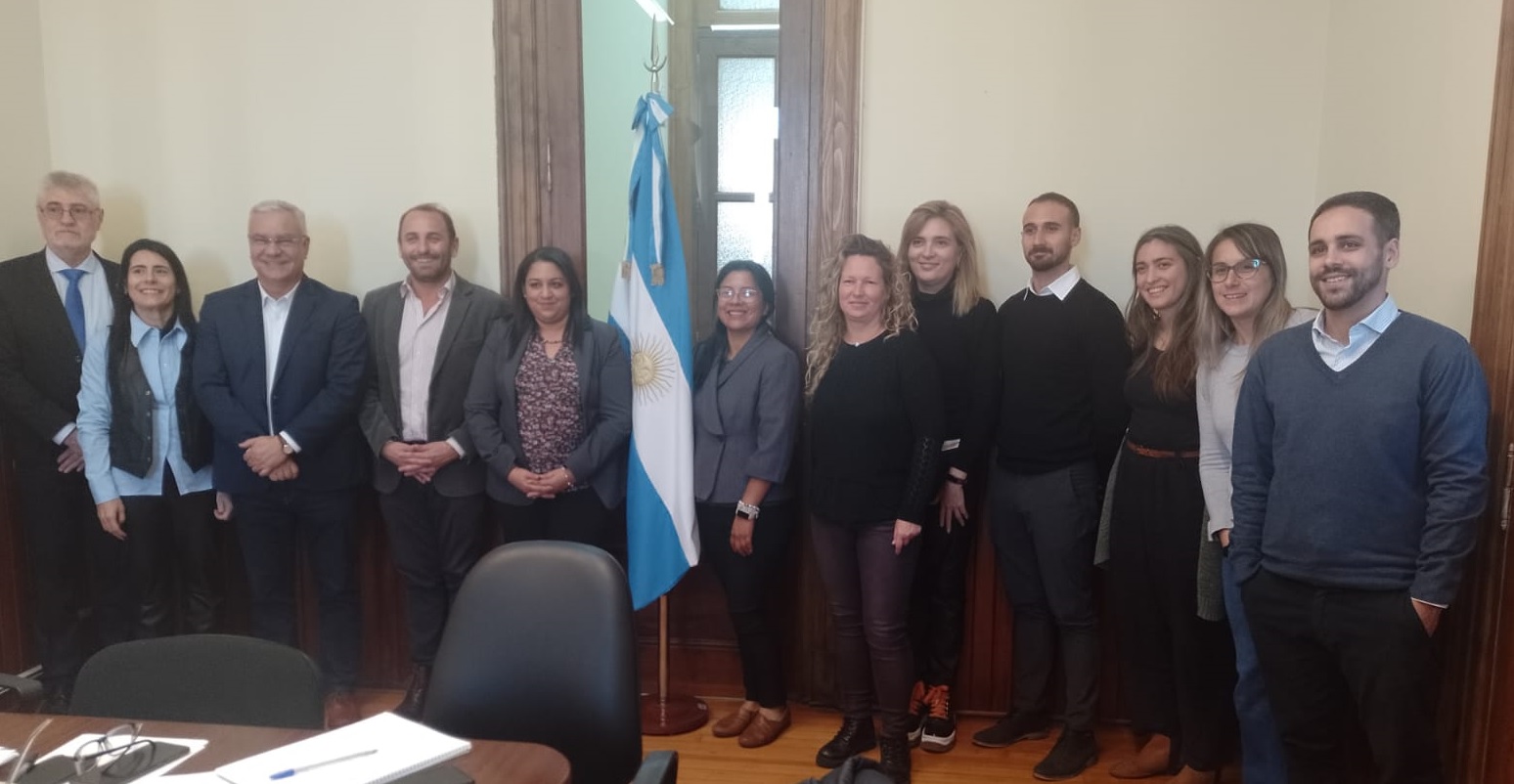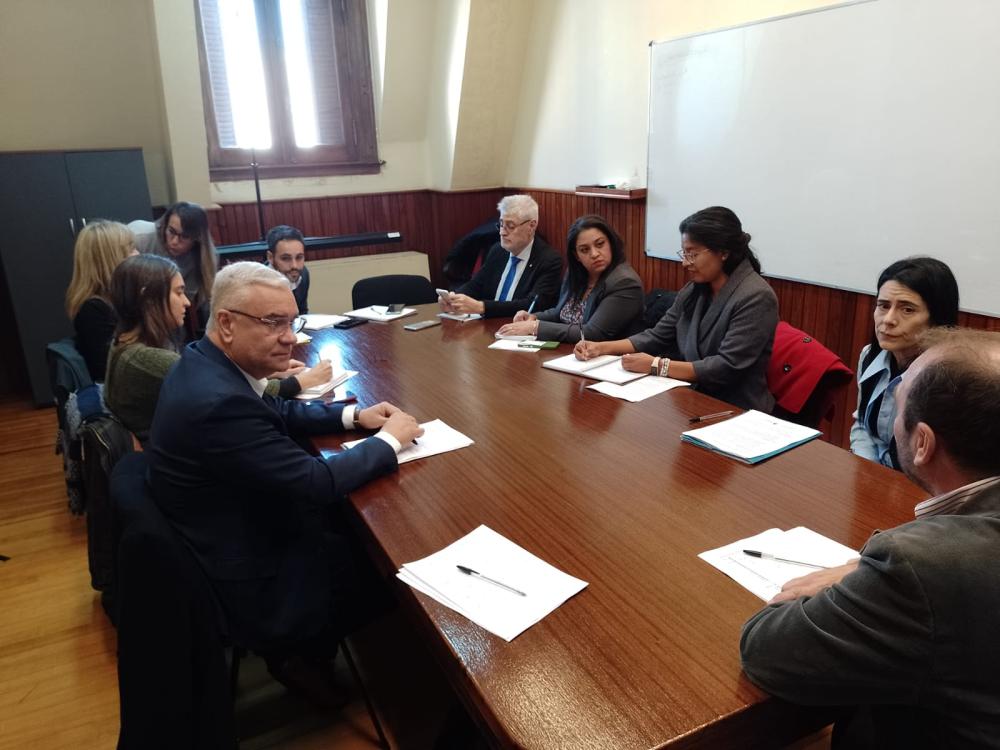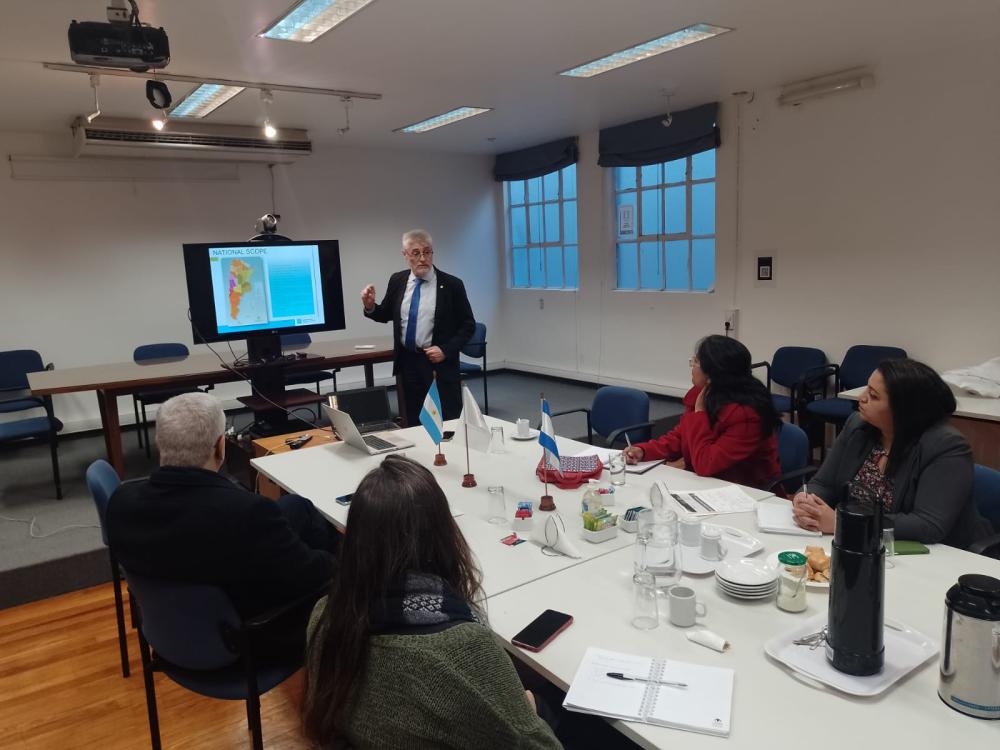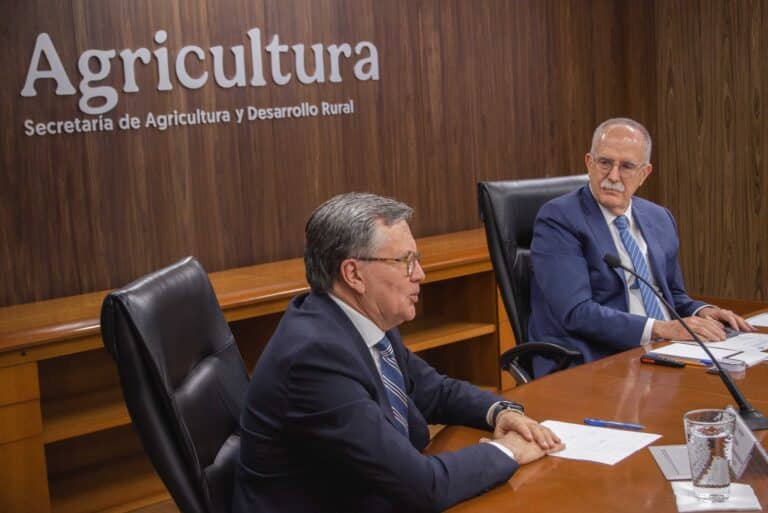The Salvadorian technical mission to Argentina will involve visits to small dairy farmers that have organized themselves into cooperatives in Misiones, a province in northern Argentina.

Buenos Aires, 7 June 2023 (IICA) – A team from the Ministry of Agriculture and Livestock of El Salvador conducted a technical mission to Argentina, aiming to gain
knowledge about best practices and the use of new technologies in dairy production to benefit family farmers.
The exchange took place within the framework of a South-South Cooperation project, involving technical staff from the National Agricultural Technology Institute (INTA), a division of Argentina’s Secretariat of Agriculture, Livestock and Fisheries (SAFyp).
The project also involves FO.AR, which is a cooperation mechanism coordinated by the Ministry of Foreign Affairs, International Trade and Worship of Argentina, enabling the development and implementation of bilateral and triangular international technical cooperation projects.
The Inter-American Institute for Cooperation on Agriculture (IICA) is coordinating the project.
The cooperation project involving Guatemala, Honduras and El Salvador, three of the countries in what is known as the Central American Dry Corridor, arose out of an agreement between the ministers of Agriculture of these countries, officials and professionals of the Argentinian government, representatives of the Central American Agricultural Council (CAC) and IICA.
The core aspect of the Salvadorian technical mission to Argentina consists of a visit to small dairy farmers that have organized themselves into cooperatives in Misiones, a province in northern Argentina, close to the border with Brazil.
These cooperatives produce milk and also transform it into value-added products, such as soft and semisoft cheeses, caramelized milk, yogurt and other by-products. They have introduced innovations in the production process, as well as in the logistical and marketing aspects, thanks to a training and technical assistance project from INTA, which has enabled them to incorporate best practices and to purchase equipment.

IICA – on a mission to build bridges
Prior to traveling to Misiones, the El Salvador team met in Buenos Aires with the National Director of Dairy Farming at SAFyP, Arturo Videla, and INTA’s Manager of International Relations, Guillermo Sánchez.
The IICA Representative in Argentina, Fernando Camargo, who also attended the meetings, spoke of the importance of the South-South Cooperation project involving Argentina, El Salvador, Guatemala and Honduras.
“Our mission is to build bridges between countries, institutions and people. Coordinating cooperation among countries in the region is in our DNA and it is essential during this era of converging crises, considering that our nations have a wealth of knowledge and experience to share, to assist in boosting agricultural productivity and sustainability. Our hemisphere is the guarantor of global food and environmental security”.
Videla gave an overview of the Argentinian dairy sector, which generated close to 1.7 billion dollars in exports in 2022, although 75% of its production was destined for the domestic market.
The National Director of Dairy Farming explained that, “Both the primary and the industrial sector have made significant investments in technology and automation, yielding positive results for productivity and animal welfare”.
Sánchez, on the other hand, delivered a presentation on the work of INTA, a state-of-the-art organization in the Argentinian government system, which is a leader in agricultural, agrifood and agroindustrial technology, generating knowledge and research since 1956.
The South-South Cooperation project between Argentina and the Central American countries will continue next September when technical officers from INTA, who are specialists in the production and industrialization of dairy products, will visit El Salvador.
El Salvador, Guatemala and Honduras constitute what has been designated as the Northern Triangle of Central America – a region that is extremely vulnerable from the perspective of food security, due to the depletion of natural resources and the impact of environmental degradation and climate change.

Poverty and diminishing job opportunities have spurred migration. Therefore, achieving greater agricultural productivity and resilience is critical to improve life in rural communities.
In addition to providing technical support to the agriculture sectors of El Salvador, Honduras and Guatemala, IICA is alerting the world to the social, economic and environmental consequences of the situation in various regions of these three countries, while working with them to resolve this scenario.
More information:
Institutional Communication Division.
comunicacion.institucional@iica.int











